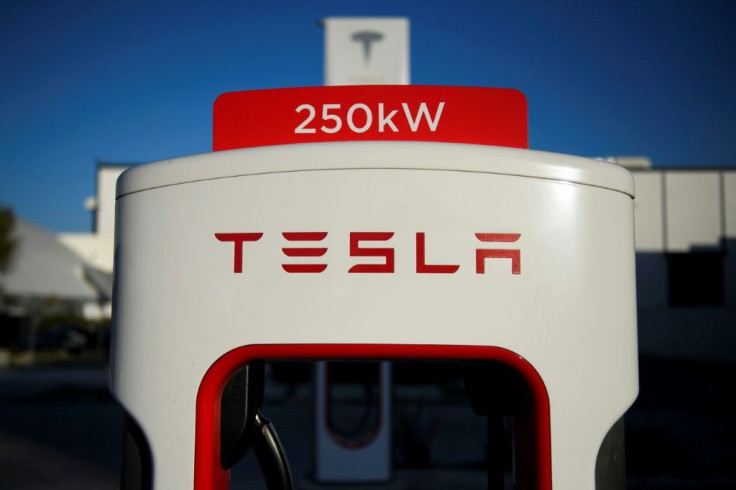Chinese EV Market: Meet Tesla's Competitors
As Tesla makes inroads into the Chinese EV market, its list of rivals is growing. Several players started competing against what is known as the largest electric car maker in the world, giving Tesla a run for its money, despite increasing its revenue from $3 billion in 2019 to $6.6 billion in 2020 in the country, according to a Securities and Exchange Commission filing from the carmaker.
Here’s a look at the competitors Tesla will have to contend with as it competes for drivers in China.
NIO
With a global headquarters in Shanghai, NIO is well-positioned to take on Tesla. The electric carmaker announced that it delivered 7,225 cars in January - an increase of 352.1% year-over-year.
The company produces the electrified EC6, ES8, and ES6 SUVs and the ET7 sedan, which it recently unveiled an autonomous version of.
NIO, was founded in 2014, and debuted its IPO in September 2018. The company originally operated under the name NextCar, changing its name to NIO in 2017.
Li Auto
Taking on Tesla in China is also Li Auto – electric SUV maker that produces the Li One EV, delivering its first model in November 2019.
The automaker delivered 5,379 electric vehicles in January – an increase of 355.8% year-over-year. Cumulative deliveries for Li Auto were 38,976.
At the same time, Li Auto announced that it was establishing a new R&D center in Shanghai for electric vehicle technologies that would include high-voltage platforms, ultra-fast charging technologies, autonomous driving technologies, next-generation intelligent cockpits, operating systems, and computing platforms.
BYD
Another rival, BYD, claims it has ranked No. 1 in global sales since 2015, with a range of electric, hybrid, and combustion vehicles.
It is headquartered in the Pingshan District of Shenzhen, China, and has a Chinese EV lineup that includes the Pro and I SUVs and sedans.
Founded in 1995, BYD also plays in the electric energy, rail, transit, and electronics markets. The company is listed on both the Hong Kong and Shenzhen Stock Exchanges and has revenues of RMB 100 billion ($15.4 trillion), according to its website.
In December 2020, BYD delivered 28,841 new energy vehicles, up from 13,099 in December 2019. For the year, the company delivered 189,689 total NEVs, down 17.35% from 2019.
Xpeng
Xpeng is located in Guangzhou, China, where it develops a line of electric vehicles that include the G3 SUV and P7 sedan.
The company was founded in 2015 and made its IPO debut in August 2020.
In January, Xpeng secured RMB 12.8 billion in credit ($1.98 trillion) with the Agricultural Bank of China, the Bank of China, China Construction Bank, China CITIC Bank, and Guangzhou Rural Commercial Bank to facilitate the expansion of its manufacturing, sales, and service capabilities.
Also in January, Xpeng delivered 6,015 smart EVs, which it said was a 470% increase from a year earlier and a third consecutive record-breaking month for the company.
Evergrande
Newcomer Evergrande is looking to enter the electric vehicle market in 2021, raising $3.35 billion in funding for its electric car unit through a share sale to six investors, who now hold a 9.75% stake in the company.
The company has not sold any EVs to date but did debut six vehicles under the Hengchi name in 2020. Evergrande expects to begin production on the vehicles later in 2021.

© Copyright IBTimes 2024. All rights reserved.





















